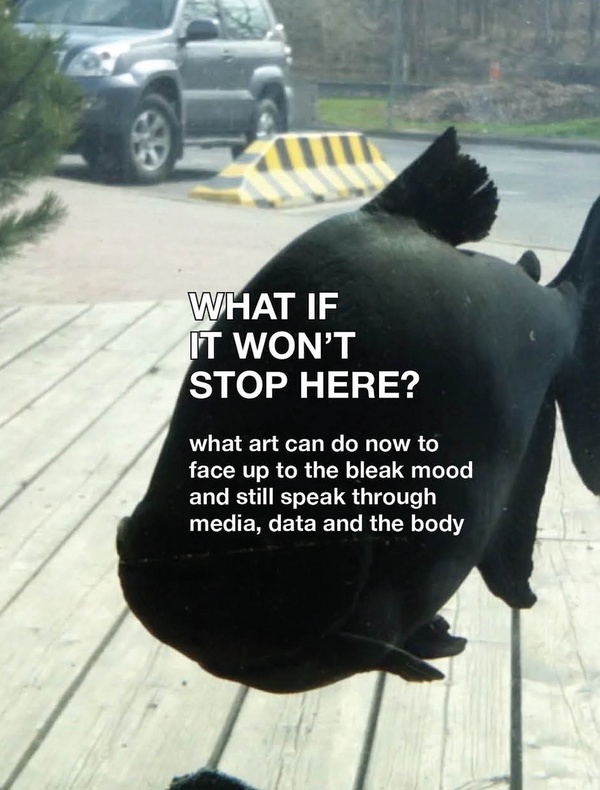 Foto: Graduiertenschule
for information in English, please click here
Sehr geehrte Damen und Herren, liebe Freunde,
wir hoffen sie heute Abend zur Vernissage der Graduale 18: What if it won't stop here? :::: What art can do now to face up to the bleak mood and still speak through media, data and the body ::: im Archive kabinett begrüssen zu dürfen.
In the Mahābhāratā, moments of suspension mark turning points in the story. Bow in hand, string fully pulled, protagonist Arjuna is tasked with taking aim at a fish strung up above a pool, only via its reflection in the water, without ever releasing the arrow. Later, the world is on the brink of war. Arjuna commands one of the armies facing each other off. Unwilling to give the go he lets his sword drop. Time stands still. With the falling blade frozen in mid-air, Arjuna talks with trickster Krishna about the life that was nearing its end.
Media nations under the spell of events prophesized by presidential tweets vote for doomsday certainty, while heads of finance have zombie shelters built in the Antipodes. Is this it? The end? What if it wasn't? Life on the planet is so much bigger than that. Still, global backlash spreads despair: What if it won't stop here? What if it keeps on getting worse? Talking back to dire realities is a pressing task. Yet, for critical art and thinking to stay alive, they also need to loosen the stranglehold that apocalyptical thought has on the political imagination. Stretching the limits of time and space with artistic means could defy the paralyzing pressure the endgame logic exerts, and recalibrate the senses. Time ripples when the beat breaks to the tune of: "Stop now, what's that sound, everybody look what's going down…"
At Archive kabinett the fellows of the UdK Graduate school at the University of the Arts Berlin show pieces born from two years of working alongside and discussing what to do when the air of gloom clouds the horizon for imagining change? Coming from visual art, dance, music, film and performance, they propose micro-political answers to the macro-political question: what is to be done? Say no to apocalypse, hold the clock, find other routes for traversing collective memory, sculpt the sonic, unscape the land, receive embodied knowledge passed on locally for centuries, make machinic souls vibrate, and demonstrate, with some gallows humor, that, when the devil is in the details, critique may thrive on nuance.
|